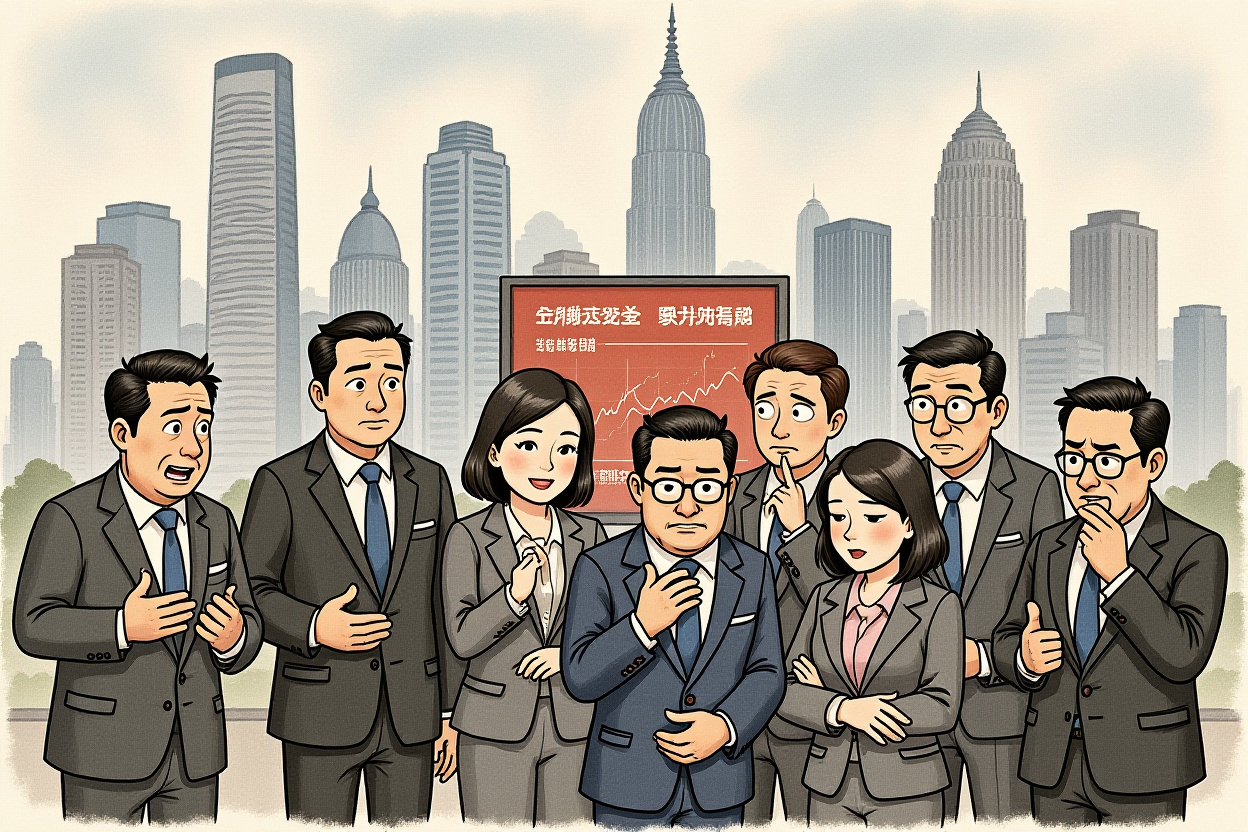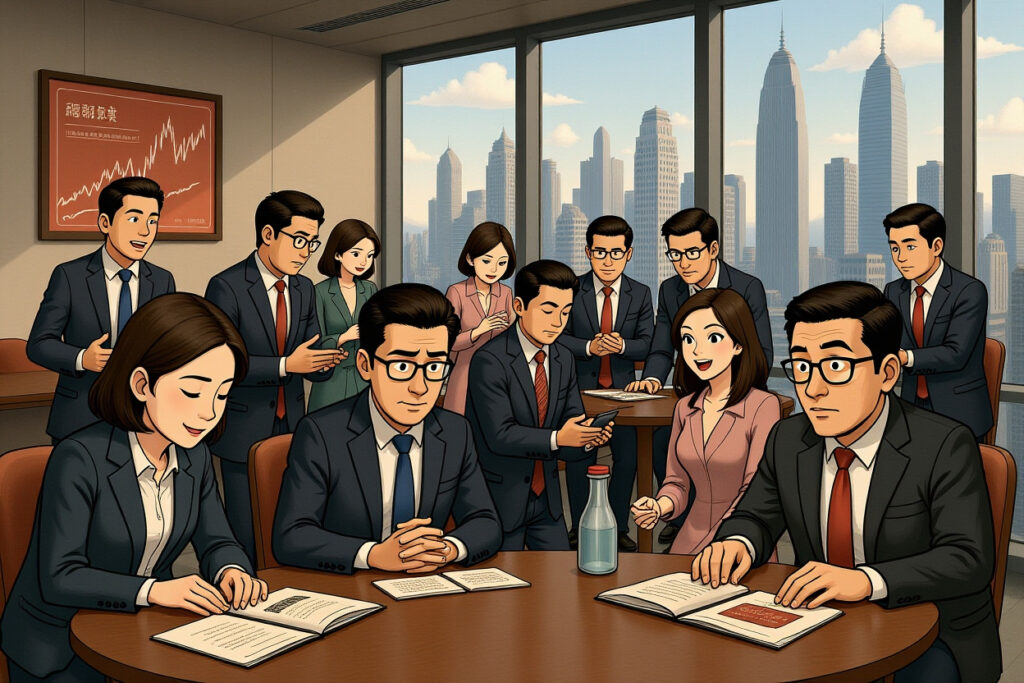Executive Summary
Key developments in the China Tower investigation:
– Former Chairman Tong Jilu (佟吉禄) under formal investigation for suspected serious violations of discipline and law
– Investigation follows months of speculation about his disappearance from public view
– Case involves joint scrutiny from Central Commission for Discipline Inspection and Zhejiang provincial authorities
– China Tower shares trading at HK$11.82 with market capitalization of HK$208 billion
– Incident highlights ongoing anti-corruption campaign in Chinese state-owned enterprises
Senior Executive Under Scrutiny in Major SOE Probe
The Chinese equity markets face renewed governance concerns as China Tower Corporation Limited (中国铁塔股份有限公司) former chairman Tong Jilu comes under formal investigation. The announcement from Central Commission for Discipline Inspection and National Supervisory Commission (中央纪委国家监委) confirms months of speculation about the senior executive’s disappearance from public view.
This China Tower investigation represents another high-profile case in China’s ongoing anti-corruption campaign targeting state-owned enterprises. Market participants are assessing potential implications for one of China’s critical telecommunications infrastructure providers.
Investigation Details and Timeline
According to official statements, Tong Jilu is suspected of serious violations of discipline and law. The joint investigation involves both the Central Commission for Discipline Inspection stationed at SASAC (国务院国资委纪检监察组) and Zhejiang Provincial Commission for Discipline Inspection (浙江省纪委监委).
The China Tower investigation follows August reports suggesting Tong had lost contact with colleagues and associates. His absence from corporate activities had generated market speculation before the official announcement on September 21st.
Career Background and Professional History
Tong Jilu brought extensive telecommunications experience to China Tower, having spent decades in China’s state-owned communications sector. His career trajectory reflects the close relationships between regulatory bodies, state-owned enterprises, and senior leadership positions.
The former chairman held numerous prestigious positions before joining China Tower, including leadership roles at China United Telecommunications Corporation (中国联合通信有限公司) and China Unicom (中国联合网络通信集团有限公司). His technical background included advanced degrees in management and economics.
Educational and Professional Credentials
Tong’s academic background included:
– 1987 graduation from Beijing University of Posts and Telecommunications (北京邮电大学) in economic management
– Master’s degree in business administration
– 2009 doctorate in management from Hong Kong Polytechnic University (香港理工大学)
His professional history demonstrated steady advancement through China’s telecommunications bureaucracy, beginning with financial management roles and progressing to executive leadership positions.
China Tower’s Market Position and Strategic Importance
As a state-owned communications infrastructure enterprise promoted by the State Council, China Tower occupies a critical position in China’s digital economy. The company specializes in communication tower infrastructure, base station supporting facilities, and network coverage systems for高铁地铁公网 (high-speed rail and subway public networks).
The China Tower investigation comes at a sensitive time for telecommunications infrastructure development. The company’s role in supporting 5G deployment and digital transformation makes leadership stability particularly important for national strategic objectives.
Financial Market Performance
Despite the leadership turmoil, China Tower’s market performance has shown resilience. The company’s shares closed at HK$11.82 on September 19th, maintaining a market capitalization of approximately HK$208 billion. Investors appear to be taking a measured approach to the news, suggesting confidence in the company’s fundamental business model.
The China Tower investigation has not triggered significant sell-offs, indicating market maturity in processing governance-related news. However, analysts continue monitoring for any operational impacts or contract delays that might emerge.
Regulatory Environment and Anti-Corruption Campaign
This China Tower investigation fits within broader patterns of regulatory enforcement in Chinese state-owned enterprises. The Central Commission for Discipline Inspection has maintained consistent pressure on SOE leadership, particularly in strategic sectors like telecommunications, energy, and finance.
Recent years have seen numerous high-profile investigations targeting senior executives at major state-owned enterprises. The pattern reflects both genuine anti-corruption efforts and political consolidation within key economic sectors.
Comparative Cases and Precedents
The China Tower investigation follows similar patterns seen in other SOE probes:
– Systematic review of financial management and procurement practices
– Focus on relationships between senior executives and suppliers
– Examination of capital expenditure decisions and contract awards
Previous investigations have resulted in leadership changes, operational reforms, and occasionally, significant financial restatements. The outcomes of this China Tower investigation will be closely watched for indications of broader regulatory trends.
Market Implications and Investor Considerations
For international investors in Chinese equities, the China Tower investigation highlights ongoing governance considerations. While anti-corruption efforts theoretically improve long-term market health, short-term disruptions can create uncertainty.
Sophisticated investors typically analyze several factors when assessing investigation impacts:
– Depth of leadership bench and succession planning
– Transparency of investigation process and timelines
– Potential operational disruptions during transition periods
– Long-term governance improvements resulting from enforcement actions
Sector-Wide Implications
The telecommunications infrastructure sector faces particular scrutiny given its strategic importance. The China Tower investigation may prompt broader reviews of procurement practices, tower leasing arrangements, and infrastructure sharing agreements.
Competitors and partners alike will monitor for any changes in business practices that might emerge from the investigation findings. Regulatory responses could influence industry dynamics beyond China Tower itself.
Forward-Looking Assessment and Strategic Guidance
The China Tower investigation represents both challenge and opportunity for market participants. While leadership transitions create uncertainty, they also can drive improved governance and operational efficiency.
Investors should monitor several key indicators in coming months:
– Appointment of interim or permanent leadership replacements
– Company statements regarding business continuity and contract execution
– Regulatory announcements regarding investigation progress
– Market reaction from customers, suppliers, and financing partners
The ultimate resolution of this China Tower investigation will provide important signals about regulatory priorities and enforcement patterns in Chinese SOEs. Market participants should maintain balanced perspectives, recognizing both governance risks and reform opportunities.
Professional investors should review their exposure to Chinese state-owned enterprises and ensure appropriate governance risk factors are incorporated into valuation models. The China Tower investigation serves as a reminder that leadership stability remains a critical variable in emerging market investments.
Engage with specialized legal and compliance experts to better understand investigation processes and potential outcomes. Proactive governance assessment can help identify opportunities amid market uncertainty.




